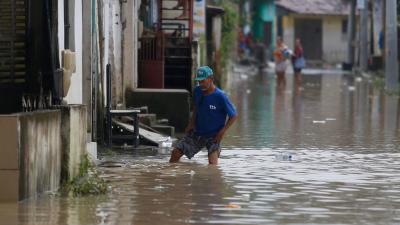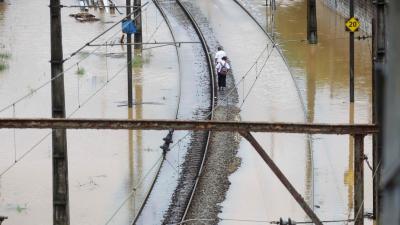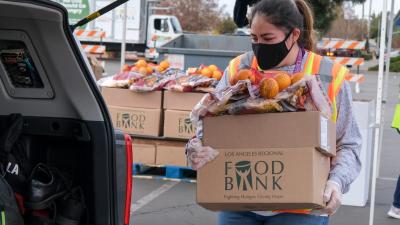Most people in the Latin American and Caribbean region do not have confidence in their local or national government to deal with a disaster, according to a new report from a global safety charity.
Data published in a new Lloyd’s Register Foundation report – Focus On: Critical infrastructure resilience and perceptions of disaster preparedness – shows that the Latin America and Caribbean region has one of the lowest confidence levels in government in the world, as only a quarter (27%) of respondents believe theirs (national and local combined) to be well prepared to deal with a future disaster.
The data comes from the Lloyd’s Register Foundation World Risk Poll, powered by Gallup, which features responses from 125,000 individuals in 121 countries. Globally, when asked if they feel their national or local government is well prepared to deal with a disaster, more respondents believe their national government is, by 40% to 37%.
The Latin America and Caribbean region follows a similar trend, although confidence is far lower in general – just three in ten respondents (30%) have confidence in the preparedness of their national government, while less than a quarter (23%) have confidence in their local government (a seven percentage point gap).
The report also analyses the responses from people who have both experienced a disaster and lost access to one of five key critical infrastructure services (electricity, clean water, food, medicine or medicinal care, and telephone), When asked how prepared they felt their national and local government were, globally, respondents showed higher levels of trust in their national government (a five percentage point difference). The Latin America and Caribbean region follows a similar trend, except the gap in confidence increases even further – from seven to 12 percentage points in favour of national government, making it the largest difference in any global region (31% versus 21%).
Low confidence figures across the region may be related to people’s broader perceptions of their government, which the World Risk Poll also explores. According to another Lloyd’s Register Foundation report – A Resilient World? Understanding vulnerability in a changing climate – the majority of respondents in the Latin American and Caribbean region (55%) also felt their government did not care about them at all – a staggering 18% higher than the global average (37%).
Jan Przydatek, Director of Technologies at Lloyd’s Register Foundation explained: “Globally, most countries show greater confidence in their national government when it comes to disaster management. This may be related to a lack of effective decentralisation policies that empower local government, as well as people’s perceptions of who is responsible for maintaining access to critical infrastructure.
“While people in the Latin American and Caribbean region also have more confidence in national government, it’s important to contextualise this within the low overall confidence figures. There’s a long way to go for both national and local governments in the region to improve preparedness and confidence, especially with people who have lost access to critical infrastructure.
“There are multiple factors that can affect people’s confidence in their government, but it’s clear more can be done in the Latin American and Caribbean region to improve preparedness. It is crucial that national and local government work together effectively on disaster management plans that reduce the risk of losing access to critical infrastructure while being attuned to people’s needs.”
Savina Carluccio, Executive Director at International Coalition for Sustainable Infrastructure added: “Results from this recent analysis of the World Risk Poll data shine a light on the need for national and local governments to be better connected and work together to tackle resilience challenges. Governments to need urgently improve the uptake of disaster risk reduction and resilience measures and communicate these measures to the public in a way they can relate to. Actions that can be taken include incentivising and prioritising development of projects aimed at enhancing the climate and disaster resilience of critical infrastructure and protecting vulnerable populations.
“Education could enhance understanding of the importance of disaster risk reduction and resilience and, in turn, improve the confidence of the public in the government’s plans and actions. Educating and building capacity of policymakers is a priority, since they are responsible for developing regulations and incentives to increase the uptake of disaster risk reduction and resilience.”
For more information, see the full report: Focus On: Critical infrastructure resilience and perceptions of disaster preparedness.



